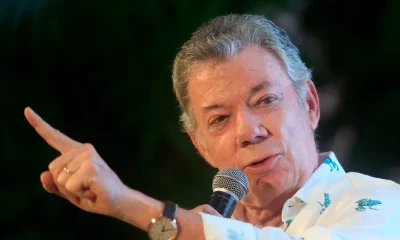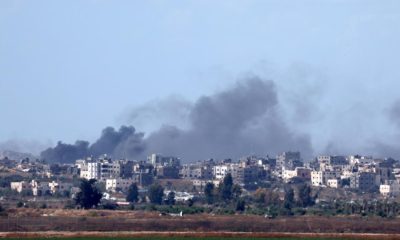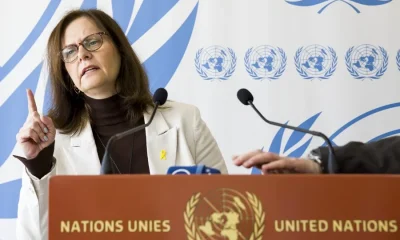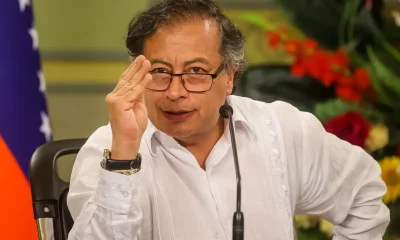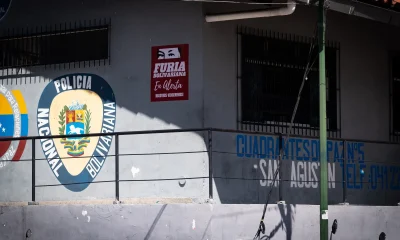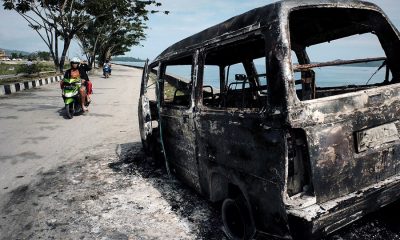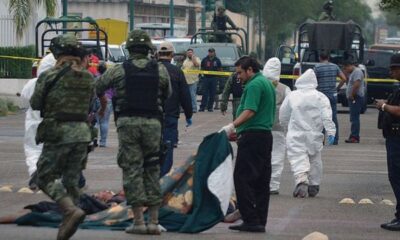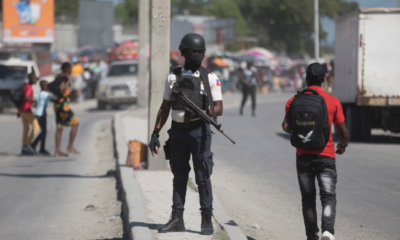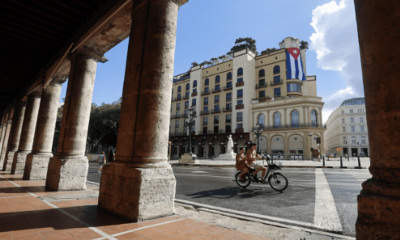International
The UN estimates the number of deaths in the Papua New Guinea avalanche at 670
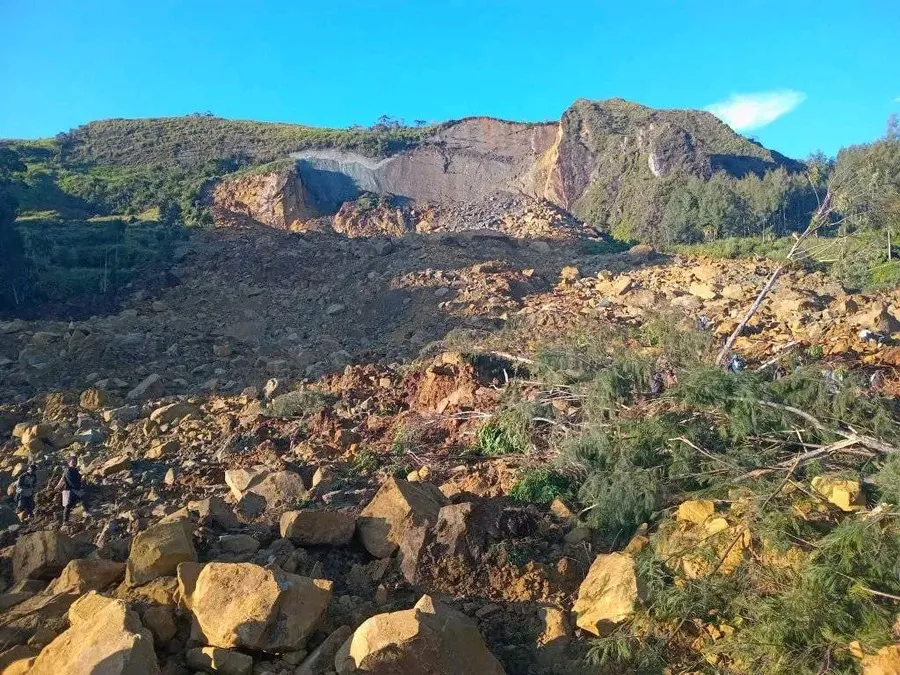
A United Nations agency estimated this Sunday that more than 670 people were killed in the avalanche of land that in the early hours of Friday buried a remote village north of Papua New Guinea.
The head of the International Organization for Migration (IOM) in Papua New Guinea, Serhan Aktoprak, told Australian state television, ABC, that according to the new estimates, more than 150 houses were buried by a layer of rocks and earth between six and eight meters deep and they fear that more than 670 people have lost their lives.
However, the United Nations delegation in Papua New Guinea clarified this Sunday to EFE by email that the number of deaths confirmed so far by the emergency response team is five, those whose bodies have been recovered in the village of Kaokalam, 600 kilometers from the country’s capital, Port Moresby.
“The team has informed us that it is difficult to confirm the actual number (of deaths) while search and rescue efforts continue,” said Kesang Phuntsho, head of the United Nations office in Papua New Guinea.
In addition to the five corpses recovered, the UN delegation indicated in a report this Sunday that there are an undetermined number of injured, “including 20 women and children.”
The official UN statement is also more cautious about the number of houses buried by the analch, which at the moment is between 50 and 60, in addition to a school, a church, orchards and vehicles.
The United Nations report indicates that the disaster area remains dangerous due to the risk of new avalanches, so they are working on the evacuation of the survivors, about 1,250, according to Aktoprak.
“My colleagues had to escape from the place because of the growing danger, since rocks continue to fall non-stop and the earth continues to slide,” said the head of IOM in the country.
He has also warned that the large amount of land fallen during the avalanche is putting pressure on the houses in the area, so evacuation is necessary.
About 4,000 people officially live in the area where the avalh occurred, although the authorities estimate that the number of people affected is higher, since the town in which it occurred is a place where locals fleeing conflicts and tribal clashes in nearby villages take refuge.
Much of the village of Kaokalam was buried by a layer of between six and eight meters of rocks and stones and the avalanche affected an area of more than 200 square kilometers, including about 150 kilometers of the main road of the province, which makes it difficult to rescue and help the survivors.
In addition, other sections of access to the village are cut off by previous landslides, so it is only possible to access by helicopter or in off-road vehicles.
Images from the site of the catastrophe shared on social networks show a vast area of rocks and land torn from a hill, as well as neighbors collecting their behods and exploring the area buried by the landslide in search of survivors.
The affected area usually suffers from heavy rains and floods, and the landslides are not unusual in the country, in which, despite the wealth in natural resources, a large part of its more than nine million inhabitants live in extreme poverty and is isolated due to a deficit in communications and infrastructure, especially in remote places such as the current catastrophe.
International
Claudia Sheinbaum: Operation Against ‘El Mencho’ Was Based on Pending Arrest Warrants

Mexico’s President Claudia Sheinbaum on Wednesday rejected claims that the military operation that resulted in the death of Nemesio Oseguera Cervantes, known as “El Mencho,” leader of the Jalisco New Generation Cartel (CJNG), was carried out under pressure from the United States government.
Sheinbaum explained that the deployment of federal forces was aimed at executing outstanding arrest warrants against Oseguera Cervantes, who was considered one of the most wanted criminals in both Mexico and the United States.
“That was not the objective (to ease pressure from the United States). It is very important, and I want to repeat it. This individual had an arrest warrant, or several,” Sheinbaum said, referring to the operation conducted on February 22.
According to the president, the initial goal was to capture Oseguera Cervantes, but military forces responded after coming under attack during the intervention.
“The operation was to detain him. The problem is that they were attacked — the Secretariat of National Defense — and they responded at that moment,” she said.
The president insisted that the action was not carried out in response to external demands, although she acknowledged intelligence cooperation with the United States.
“It was not done in any way because of pressure from the United States, not at all. Of course, there was intelligence information from the United States that was used specifically,” she concluded.
International
Spain Denies Any Agreement to Cooperate with U.S. Military in Iran Operations
International
White House Says Spain Agrees to Cooperate with U.S. Military After Trump Threatens Trade Embargo

White House Press Secretary Karoline Leavitt said Wednesday that Spain has agreed “in recent hours” to cooperate with the U.S. military, following President Donald Trump’s threat to impose a trade embargo on Madrid.
Trump had warned of potential commercial measures after Spain reportedly refused to allow the Pentagon to use facilities at Spanish military bases for operations related to Iran.
“With respect to Spain, I think you heard the president’s message yesterday loud and clear, and I understand that in recent hours they have agreed to cooperate with the United States military,” Leavitt said during a press briefing.
She added that the U.S. military is currently coordinating with its counterparts in Spain. However, the president expects broader support.
“The president expects that all of Europe, all of our European allies, of course, will cooperate in this important mission — not only for the United States, but also for Europe,” Leavitt said.
Her remarks came in response to questions about Spain’s position and its role as a U.S. ally amid rising tensions surrounding operations involving Iran.
-

 International3 days ago
International3 days agoIran Reports 201 Dead, 747 Injured After U.S. and Israeli Strikes
-

 International3 days ago
International3 days agoPope Leo XIV Urges End to ‘Spiral of Violence’ in Middle East
-

 International2 days ago
International2 days agoBrazil’s Supreme Court Rejects Bolsonaro’s Bid for House Arrest
-

 International4 days ago
International4 days agoSecurity Council to Hold Emergency Meeting on Middle East Crisis
-

 Sin categoría4 days ago
Sin categoría4 days agoTrump: ‘We Think It’s True’ Amid Claims Iran’s Supreme Leader Was Killed
-

 International2 days ago
International2 days agoAnti-ICE Billboard Campaign Targets Immigration Spending in 31 U.S. Cities
-

 International2 days ago
International2 days agoTrump Warns of ‘Major Wave’ of Attacks as Iran Conflict Escalates
-

 International1 day ago
International1 day agoSpain’s Prime Minister to Address Nation Amid Trump’s Trade Threats
-

 International2 days ago
International2 days agoMexico Calls for Immediate Probe After National Dies in ICE Custody
-

 International2 days ago
International2 days agoBolivia Orders Three Investigations Into Deadly Military Plane Crash
-

 International1 day ago
International1 day agoNew York Announces First 2,000 Seats in Universal 2-K Program
-

 Central America2 days ago
Central America2 days agoPanama Canal Monitoring Trade as Middle East Conflict Disrupts Shipping
-

 Central America1 day ago
Central America1 day agoGuatemala’s Attorney General Fails in Bid for Top Court Seat Amid Corruption Allegations
-

 International1 day ago
International1 day agoWarner Bros. Developing First ‘Game of Thrones’ Movie With ‘Andor’ Writer
-

 International2 hours ago
International2 hours agoWhite House Says Spain Agrees to Cooperate with U.S. Military After Trump Threatens Trade Embargo
-

 International2 hours ago
International2 hours agoSpain Denies Any Agreement to Cooperate with U.S. Military in Iran Operations
-

 Central America2 hours ago
Central America2 hours agoNicaragua Held Responsible for Harassment of Opposition Prosecutor and His Family
-

 International2 hours ago
International2 hours agoClaudia Sheinbaum: Operation Against ‘El Mencho’ Was Based on Pending Arrest Warrants



























